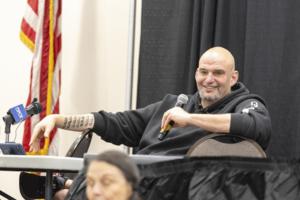Current News
/ArcaMax

John Fetterman has long been viewed as progressive. Experts say his track record proves otherwise
WASHINGTON — U.S. Sen. John Fetterman of Pennsylvania made something abundantly clear almost 18 months ago — regardless of his enthusiastic endorsement of Democratic Socialist Sen. Bernie Sanders in 2016, his long support for the LGBTQ community, and his strong backing of unions and other views aligning him with liberal Democrats.
“I’m ...Read more





